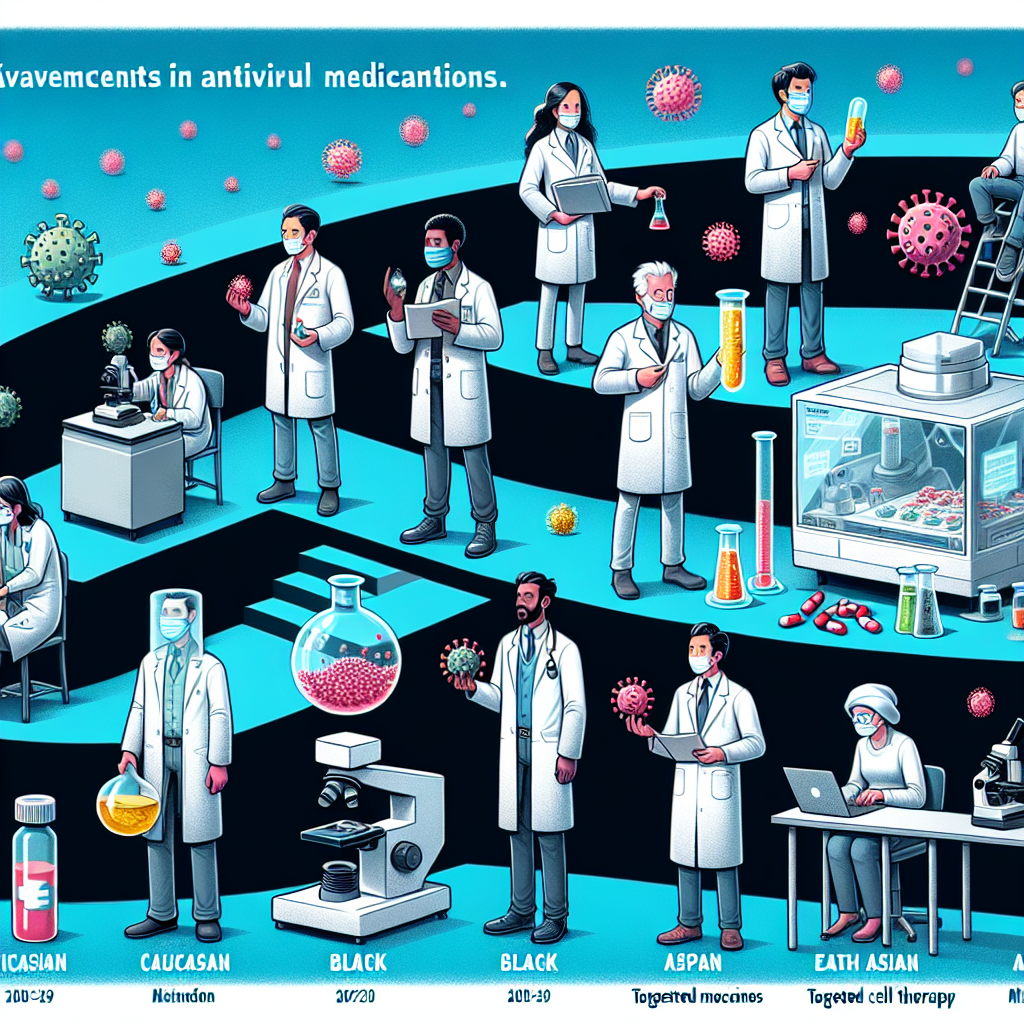The development of antiviral medications represents a beacon of hope in the fight against viral infections that have plagued humanity for centuries. From the common cold to life-threatening diseases like HIV and COVID-19, the burden of viral illnesses can be overwhelming. As we continue to navigate a world increasingly affected by viral pathogens, the urgency for innovative therapies has never been more pronounced. This article delves into the transformative advancements in antiviral therapies and offers a glimpse into the promising future of drug development that is set to redefine patient care.
Breakthrough Innovations in Antiviral Therapies and Treatments
Recent years have witnessed remarkable advancements in antiviral therapies, fundamentally altering the landscape of treatment options available to patients. One significant breakthrough has been the development of direct-acting antivirals (DAAs) that target specific stages of the viral life cycle, leading to higher efficacy and shorter treatment durations. For instance, DAAs for Hepatitis C have revolutionized patient outcomes, boasting cure rates above 95% in many cases. This precision medicine approach not only improves the patient’s quality of life but also reduces the overall healthcare burden by preventing long-term complications associated with chronic viral infections.
Moreover, the emergence of novel therapeutic modalities such as monoclonal antibodies and RNA interference has further expanded the arsenal against viral diseases. Monoclonal antibodies, which are engineered to bind to specific viral proteins, have shown promise in providing immediate immunity, particularly in preventing severe disease progression in infections such as COVID-19. Meanwhile, RNA interference technologies, by disrupting viral RNA, offer a groundbreaking method to halt viral replication at its source, with applications being explored against a range of viral threats including influenza and Zika virus.
Finally, what truly sets the current wave of antiviral innovations apart is the integration of artificial intelligence (AI) and machine learning in drug discovery processes. These technologies enable researchers to analyze vast datasets and identify potential drug candidates more efficiently than traditional methods. By predicting how different compounds will interact with viral targets, AI-driven approaches have accelerated the development timeline, allowing for a rapid response to emerging viral threats—an essential capability highlighted by the COVID-19 pandemic.
Exploring the Future of Antiviral Drug Development and Research
As we look toward the future, the development of antiviral medications is poised for continued evolution. One of the most exciting frontiers involves the exploration of broad-spectrum antivirals, which aim to target multiple viruses or viral families. The need for such treatments has been underscored by the emergence of novel pathogens that may evade existing antiviral strategies. Researchers are investigating compounds that can inhibit viral entry, replication, or assembly, potentially offering a powerful tool in managing outbreaks of both known and emerging viral diseases.
Another promising avenue of research is the role of the microbiome in antiviral effectiveness. Emerging evidence suggests that gut health may influence immune responses, thereby affecting how well antiviral medications work. By utilizing this knowledge, researchers are beginning to explore how therapeutic interventions that modulate the microbiome can enhance the efficacy of existing antiviral treatments. This integrative approach may not only improve clinical outcomes but also lead to personalized antiviral therapies tailored to individual patient profiles.
Finally, the field is also witnessing a push towards global collaboration in antiviral research, recognizing that infectious diseases do not respect borders. Initiatives like the Coalition for Epidemic Preparedness Innovations (CEPI) are facilitating rapid responses to viral outbreaks by funding research and fostering partnerships between governments, academia, and the private sector. This collaborative spirit is essential for developing vaccines and antiviral medications that can be deployed swiftly in response to emerging threats. The future of antiviral drug development will likely hinge on this collective effort, ensuring that we are better equipped to handle whatever challenges lie ahead.
The advancements in the development of antiviral medications not only showcase the incredible ingenuity of modern science but also offer a renewed hope for millions affected by viral diseases worldwide. With breakthroughs in direct-acting antivirals, monoclonal antibodies, and the integration of cutting-edge technology, the landscape of antiviral therapies is evolving at an unprecedented pace. As we continue to explore the potential of broad-spectrum antivirals and personalized medicine, there is a palpable sense of optimism about the future of treatment options. By staying informed and engaged with the latest developments in this field, we can all contribute to a brighter, healthier future in the fight against viral infections. Don’t miss the chance to be part of this exciting journey—explore, learn, and advocate for innovative health solutions that could change lives for the better.
Essential Strategies for Preventing Viral Infections EffectivelyEssential Strategies for Preventing Bacterial InfectionsUnderstanding the Mechanisms of Virus and Bacteria TransmissionRelevant LinkRelevant LinkRelevant LinkUnderstanding Lower Back Pain Linked to COVID-19: Insights and ManagementUnderstanding COVID-19: Navigating Loss of Appetite ChallengesUnderstanding COVID Laryngitis: Symptoms, Causes, and TreatmentRelevant LinkRelevant LinkRelevant Link
